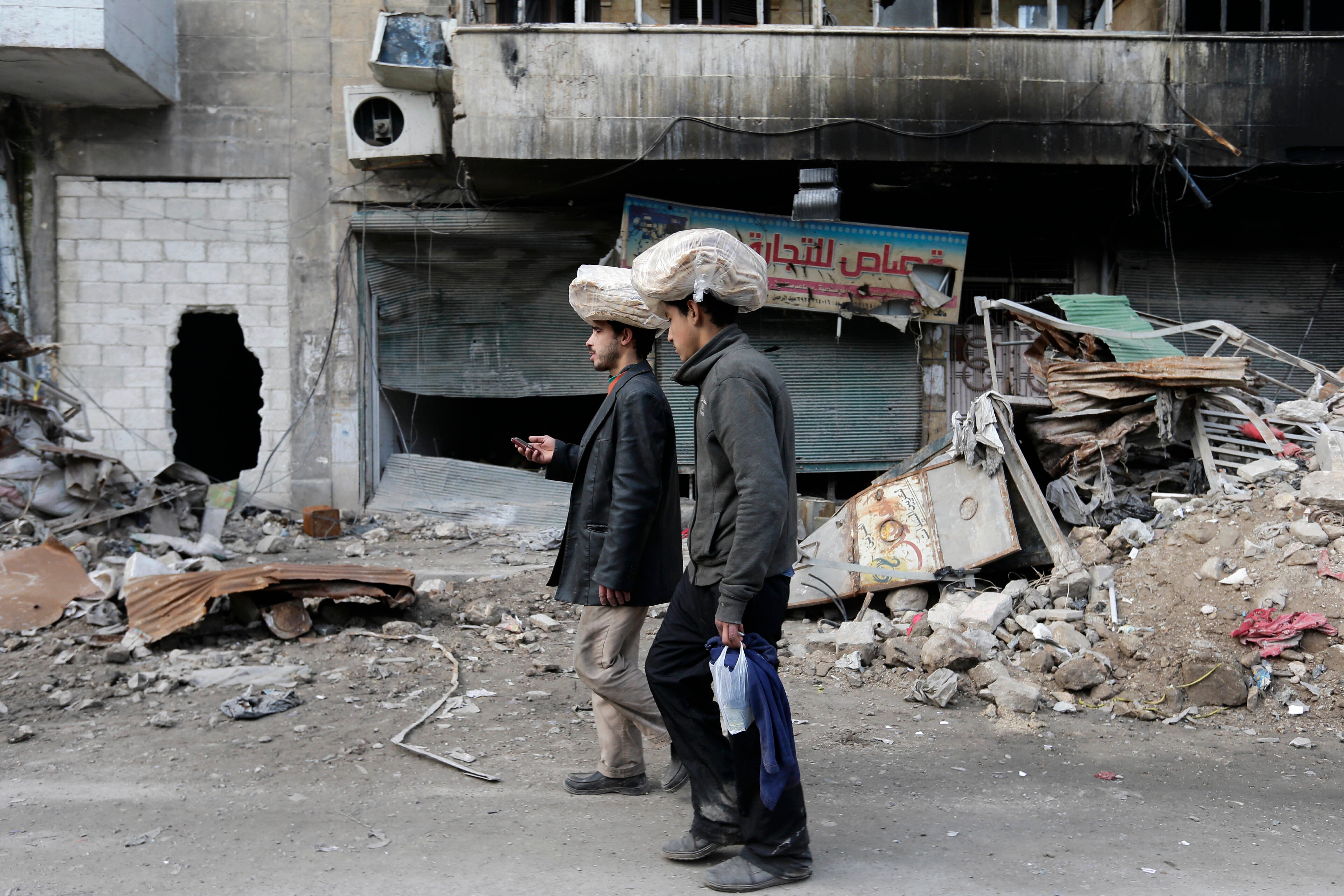Syrian president decrees financial stimulus amid crisis
Syria’s president has issued a decree granting hundreds of thousands of public sector workers and soldiers a one-time financial stimulus, equivalent to an average monthly salary

Your support helps us to tell the story
From reproductive rights to climate change to Big Tech, The Independent is on the ground when the story is developing. Whether it's investigating the financials of Elon Musk's pro-Trump PAC or producing our latest documentary, 'The A Word', which shines a light on the American women fighting for reproductive rights, we know how important it is to parse out the facts from the messaging.
At such a critical moment in US history, we need reporters on the ground. Your donation allows us to keep sending journalists to speak to both sides of the story.
The Independent is trusted by Americans across the entire political spectrum. And unlike many other quality news outlets, we choose not to lock Americans out of our reporting and analysis with paywalls. We believe quality journalism should be available to everyone, paid for by those who can afford it.
Your support makes all the difference.Amid sharp economic decline, Syrian President Bashar Assad issued a decree on Tuesday granting hundreds of thousands of public sector workers and soldiers a one-time financial stimulus, equivalent to an average monthly salary.
The stimulus — the third since October — comes as the national currency is crashing, now at 4,000 Syrian pounds to the dollar on the black market, compared to 700 a year ago. The official rate for the dollar is fixed at 1,256 Syrian pounds for $1.
Nearly 80% of Syrians live in poverty, and 60% are food insecure — the worst food security situation ever seen in Syria, according to the United Nations
The decree stated that a one-time 50,000 Syrian pounds, which is nearly $11 on the black market, would go to public sector workers, including those on part-time contracts and conscripts. And 40,000 Syrian pounds would be dispensed to pensioners.
Inflation has hit between 180 and 300%, according to the Syria Central Bureau of Statistics. The price of a kilogram (2.2 pounds) of sugar has gone from 700 Syrian pounds to around 2,400 this year.
Economist Ziad Ghosn said the one-time payment is equivalent to the average monthly salary and estimated the cost of the stimulus would be around 120 billion Syrian pounds. He also estimated the stimulus would reach about 2 million people.
Syrians have been struggling with deteriorating economic conditions, shortages of basic goods and medicine, and have been forced to wait in long lines to buy subsidized bread and fuel.
A decade of conflict has caused huge devastation to the Syrian economy, isolated its government and displaced its people, driving most of them into poverty. The pandemic restrictions have added to pressure on the economy, compounded by the financial crisis in neighboring Lebanon which has been a bridge to Syria economically and financially.
More than half a million people have been killed in Syria's 10-year conflict that has also left the country's infrastructure in ruins and most of its oil and agriculture resources outside of government control.